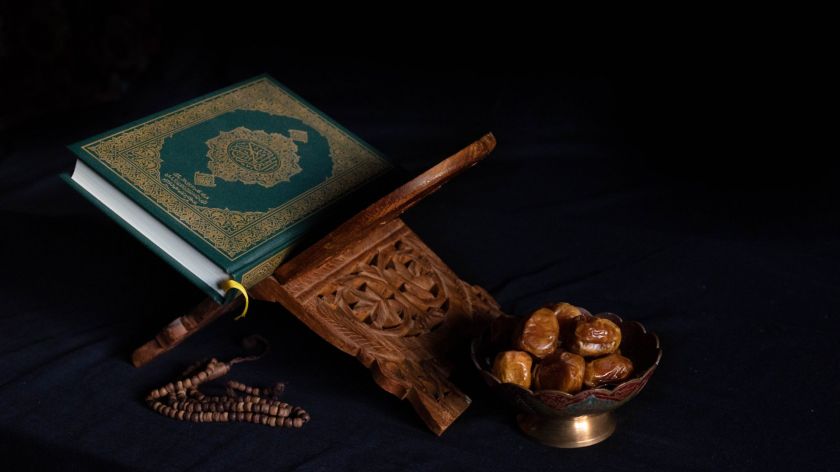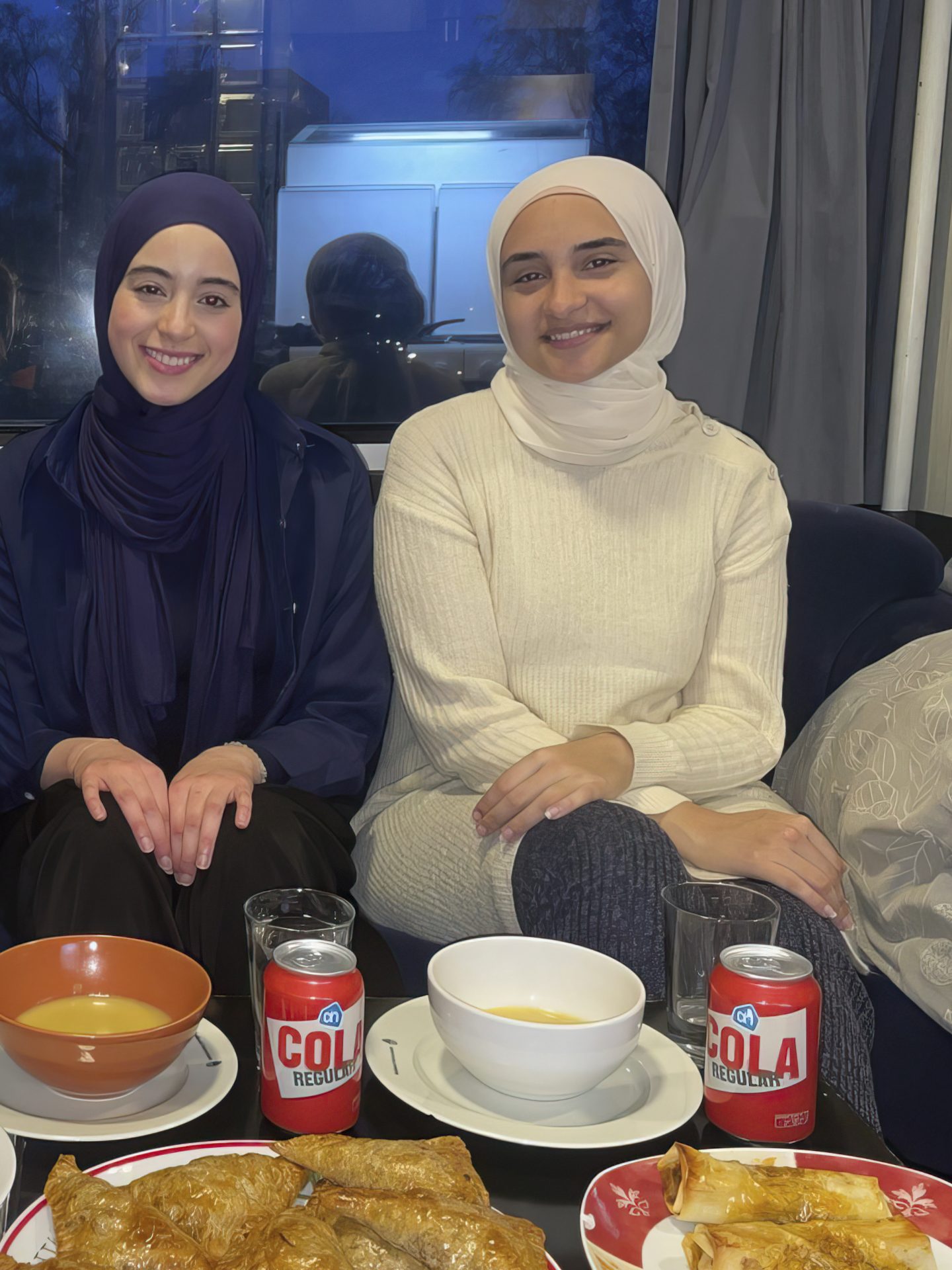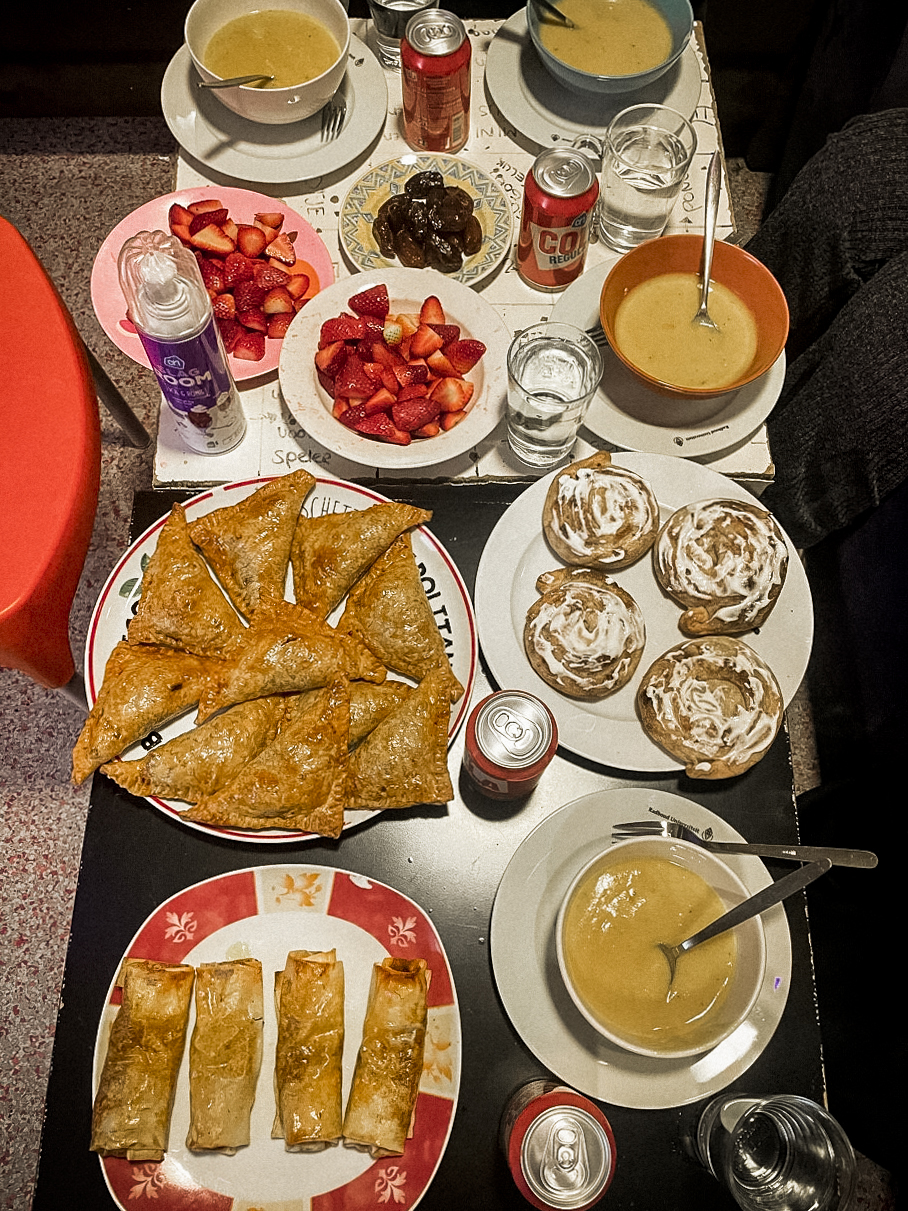Happy holidays (5): Ramadan
-
 Photo via unsplash
Photo via unsplash
Every country has its own celebrations. But what is it like to celebrate a traditional holiday far away from home? International students and staff members often find the answer to this question during their time in Nijmegen. This time: Ramadan.
It is almost 2.00 p.m. on a Friday, and Hagar Khermjioui is at the entrance of the local mosque. After greeting other women at the entrance, she finds a comfortable spot on the carpet and casually chats with other girls before the sermon starts. While going to the mosque on a Friday is not unusual for a Muslim, one thing is different today: she skipped her breakfast and lunch.
‘A lot of people perceive Ramadan as a month of hunger’, laughs the 22-year-old psychology student. ‘But there is much more to it. Ramadan is a month of self-reflection, where we rethink ourselves and our deeds. Fasting is just what we do to remind ourselves of how blessed we are in life and how to appreciate this more.’ Ramadan marks the ninth month of the Lunar calendar and lasts twenty-nine to thirty days. Along with praying, reading Quran, and carrying out charitable acts, healthy Muslims are required to fast from dawn to sunset.
‘Many of my non-Muslim friends claim they could never fast for the whole month, says Khermjioui. But according to her, that’s the point: ‘Only when we give up on the commodities, we understand how rich we are.’ However, Khermjioui does admit that fasting gets easier after a few days. She also notes that Islam puts a high emphasis on one’s well-being, so fasting is not required for those who could be negatively affected by it. ‘Islam reminds us to give rest to our bodies and cleanse from the inside out.’
This is not the first Ramadan Khermjioui has spent alone in the Netherlands, but she tries to meet with her family in Germany at least once every Ramadan. According to the student, celebrating alone has its good and bad sides. ‘Being alone during Ramadan allows me to really delve into myself and re-evaluate my life path – I always feel very peaceful and calm,’ says Khermjioui. ‘However, since I am not the greatest cook, I miss my mom’s food and the big feasts with my family. Sharing food with your loved ones is something special.’
After visiting the mosque, she rushes to the shop to buy all the necessary ingredients for the evening. The sunset today is set at 8.30 p.m., so she has a lot of time to prepare the food – Moroccan chicken cigars, lentil soup, and vegetable pastries. ‘I like to cook Moroccan food since those are my parent’s roots. My favourite Iftar dish is fish tagine, but my mom does it way better than me’, she admits. As the smell of food spreads through the dorm hallways, Khermjioui is counting down the minutes. ‘I do not know many international Muslim students, so I sometimes invite my non-Muslim friends – they are always happy to break the fast with me.’
She admits that she is always much more excited for the first sip of water than for all the food on the table. So as the clock shows 8.30 p.m., Khermjioui quietly does her prayer and takes a big sip of water, followed by the bite of a date. ‘Eating a date is a traditional way of breaking a fast, and we do it because this was how the Prophet did it’, she explains.
As she enjoys her food, Khermjioui admits that her favourite part of spending Ramadan away from home is sharing traditions with non-Muslim friends. ‘I get a lot of fun questions and even more shocking looks, but I really enjoy sharing experiences and facts about Islam with my curious friends, it will never get boring.’ Among many questions about Islamic traditions, Khermjioui’s favourite is the one about the colour of hijabs: ‘Many have asked me if there is a rule about choosing a colour for hijab. The answer is yes, the rule is to choose the one that best suits your outfit!’





